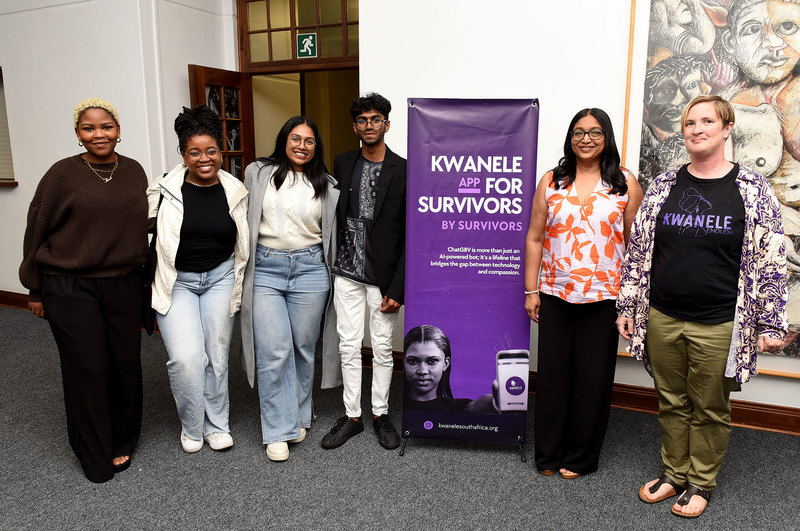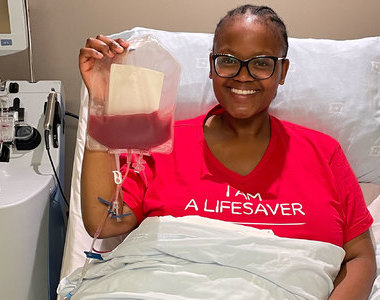UCT gets powerful new tool to combat gender-based violence
02 November 2023 | Story Stephen Langtry. Photos Nasief Manie. Voice Cwenga Koyana. Read time 4 min.
The University of Cape Town’s (UCT) far-reaching efforts to address gender-based violence (GBV) got an important boost with the introduction of Kwanele, a powerful new digital tool to track and help counter sexual misconduct on its campuses.
Introduced to a diverse audience at an event on lower campus on Friday, 27 October, the survivor-centred app allows for GBV incidents to be reported without fear of persecution, shaming or other barriers that often deter survivors from coming forward.
“A lot of people don’t understand what survivor-centred means. It doesn’t favour an outcome for the survivor. What it does do is that it helps take someone through the system where we minimise re-victimisation as much as we can,” explained Ann Isaac, the legal manager of UCT’s Special Tribunal that deals with formal disciplinary processes for sexual misconduct.
“Survivor-centred … helps take someone through the system where we minimise re-victimisation as much as we can.”
UCT, Isaac added, is the first higher education institution to synergise a process dealing with sexual misconduct for both staff and students.
The power of data
Kwanele’s chief executive officer, Leonora Tima, said that the app is especially designed to counteract the stigma associated with reporting GBV by harnessing the power of technology. The platform is not exclusive to women, offering a means for anyone to report incidents, without bias.
Among its essential features is the potential to collect valuable data and to provide training on various aspects of GBV, including consent, healthy relationships, and bystander intervention. Through these educational resources, the app contributes to the prevention of GBV and the promotion of a culture of respect and accountability.
Data collection that can be leveraged to track and address GBV trends is also critical for understanding the scope of the problem, identifying hotspots, and tailoring interventions, according to Tima.
While Kwanele has the potential to benefit the broader community, its primary focus is on university students. By providing a dedicated platform for reporting and addressing GBV incidents, it aims to create a safer and more inclusive learning environment.
Obtaining consent for data use is another critical element of Kwanele’s approach. Users will have control over their information, sharing it only if they choose to do so. This emphasis on consent underscores the commitment to respecting survivors’ agency and privacy.
“Kwanele didn’t just come up with an app without thinking carefully about who it serves. Those who are meant to use the service were consulted,” said Professor Elelwani Ramugondo, UCT’s deputy vice-chancellor for Transformation, Student Affairs and Social Responsiveness.
The launch event also featured performances by musicians, underscoring the power of art and culture in promoting awareness and change.
 This work is licensed under a Creative Commons Attribution-NoDerivatives 4.0 International License.
This work is licensed under a Creative Commons Attribution-NoDerivatives 4.0 International License.
Please view the republishing articles page for more information.
Listen to the news
The stories in this selection include an audio recording for your listening convenience.

































































































































































































































































































































































































